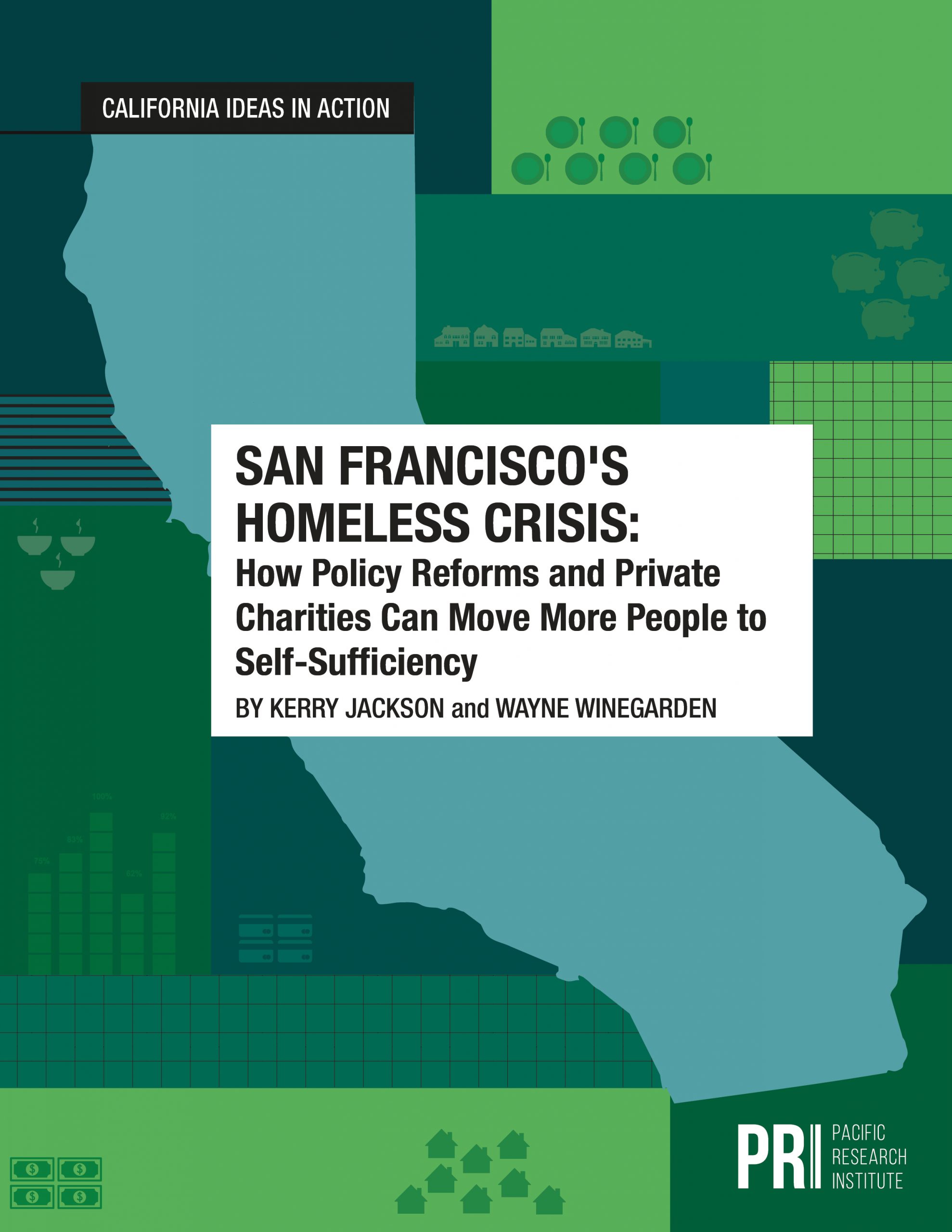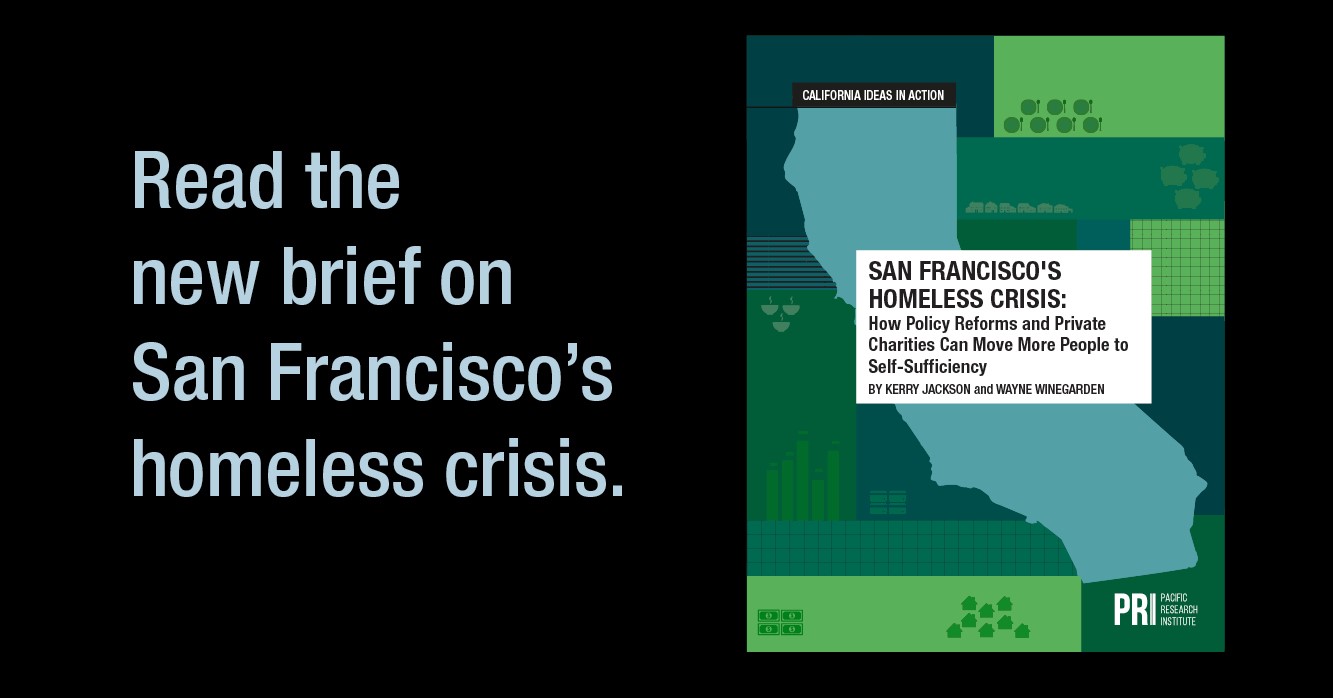A new brief on San Francisco’s homeless crisis published today by the nonpartisan Pacific Research Institute concludes that the city could make great strides in reducing homelessness by encouraging and supporting private sector involvement, while making policy changes that will invite a homebuilding boom.
The brief includes more than a dozen policy reform recommendations, which PRI has presented to Mayor London Breed’s administration.
 “San Francisco’s homeless crisis affects everyone who lives or works in the city,” said Kerry Jackson, co-author of the PRI “California Ideas in Action” brief. “Aggressive panhandling and human waste on the streets have become all too-common sights. City leaders should look to free-market reforms, private charities, and public-private partnerships if they’re serious about wanting to clean up the streets and help the chronically homeless.”
“San Francisco’s homeless crisis affects everyone who lives or works in the city,” said Kerry Jackson, co-author of the PRI “California Ideas in Action” brief. “Aggressive panhandling and human waste on the streets have become all too-common sights. City leaders should look to free-market reforms, private charities, and public-private partnerships if they’re serious about wanting to clean up the streets and help the chronically homeless.”
According to federal data, no city has a greater portion of its population on the streets than San Francisco – for every 100,000 San Francisco residents, there are 492 homeless people.
In the report, Jackson and Wayne Winegarden explore the key factors inflating the city’s homeless problem, which include job losses, evictions, losing the safety net provide by family or friends, high cost of living, substance abuse, and mental illness.
They make the case that private charities and non-profits are typically better equipped than government to make real differences in the lives of the homeless because they can tailor programs to specific needs and can adapt where government cannot.
“By embracing private charities and non-profits, using tax dollars more effectively, and lifting the barriers to affordable home construction, San Francisco can make real progress in getting the city’s homeless on the path to self-sufficiency and a permanent home,” said Winegarden.
Among the policy recommendations in PRI’s brief:
• Focus public dollars on creating shelter programs that work, such as San Diego’s large tent program or Santa Rosa’s HOST program, reallocating public dollars that would otherwise be spent on cleaning up the streets to fund these expanded shelter programs.
• Engage with law enforcement to connect homeless persons with the public and private organizations that can help transition them to permanent residences.
• Reform city housing policy (speeding up the housing permit process, reforming zoning laws, and eliminating rent control) to reduce housing construction costs and encourage a housing boom.
• Provide more accountability over how homeless program dollars are spent, producing comprehensive public reports evaluating which programs are working, to prioritize limited public funds where they will be most effective.
Kerry Jackson is a fellow with PRI’s Center for California Reform, and the author of past PRI issue briefs on housing and poverty in California. Dr. Wayne Winegarden is senior fellow in business and economics and director of PRI’s Center for Medical Economics and Innovation.


